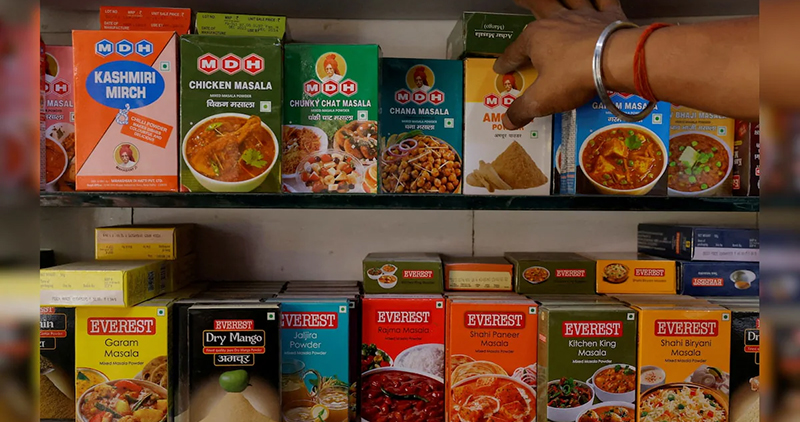Spice-mix Product Ban: After Hong Kong-Singapore, now there is a ban on the sale of Indian spices in this country; Know the reason
The crisis facing India’s leading spice brands is increasing day by day. The controversy over Indian spices that started last month is still showing no sign of stopping. This dispute has now reached Nepal via Singapore and Hong Kong. India’s neighboring country Nepal has banned the sale and import of some spices manufactured by Indian brands due to quality concerns.
The neighboring country gave this reason
Nepal’s Food Technology and Quality Control Department has banned the import, consumption and sale of over 100-year-old Indian spice companies Everest and MDH. Apart from this, investigation into the quantity of ethylene oxide has also been started. Let us tell you that four products of MDH and Everest have been banned citing high quantity of ethylene oxide.
Ban imposed on these spices
The spices that have been banned include Madras Curry Powder, Sambar Mix Masala Powder, MDH’s Mixed Masala Curry Powder and Everest’s Fish Curry Masala.
Statement from Nepal’s Food Control Department official
An official of Nepal’s Food Technology and Quality Control Department said, ‘Our attention has been drawn to media reports that these substandard products are being sold in the market and are harmful for consumption. High amounts of ethylene oxide have been found in these four products. Therefore, the import and sale of these products within the country has been banned.
The food quality control regulator has also urged importers and traders to withdraw these products from the market.
Hong Kong and Singapore also imposed ban…
It is noteworthy that last month Hong Kong and Singapore had banned some spices. The Federation of Indian Spice Stakeholders (FISS) on Friday said India’s spice exports could decline by nearly 40 per cent in fiscal 2025 if the issue of ethylene oxide contamination in spices for export is not resolved as soon as possible.
According to the Spices Board of India, India is one of the world’s leading spice producers, exporting more than 200 spices and value-added products worth $4 billion to about 180 countries in 2021-22.
What steps did the Indian Spices Board take?
Amid the spice controversy, the Spices Board of India has taken steps to ensure the safety and quality of Indian spice exports in these areas. The board has implemented the recommendations of the techno-scientific committee, which tried to find out the main reason and also inspected its processing facility. Samples have been sent to a certified lab for testing.
The Spices Board of India also conducted a stakeholder consultation involving over 130 exporters and associations, such as the All India Spices Exporters Forum and the Spices and Foods Exporters Association of India. The Board has also issued guidelines for ETO treatment to all exporters. The Spices Board has taken this step to prevent EtO contamination in spices exported from India.
Allegations of cancer causing chemicals in MDH, Everest
Let us tell you that in the month of April, Hong Kong had banned four spice products of Indian brands MDH and Everest. The reason for this was the presence of cancer causing chemical ethylene oxide.



